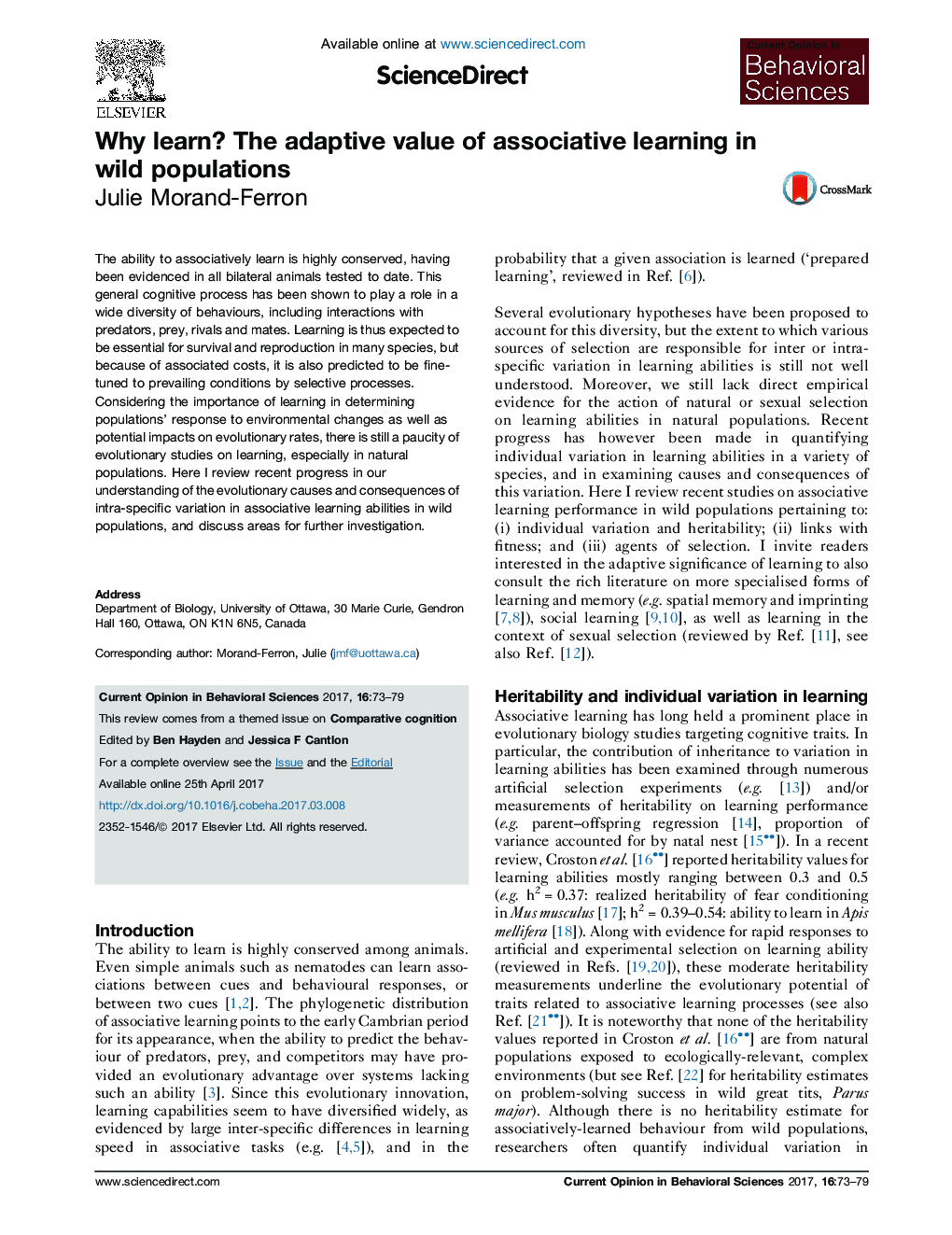| Article ID | Journal | Published Year | Pages | File Type |
|---|---|---|---|---|
| 5735847 | Current Opinion in Behavioral Sciences | 2017 | 7 Pages |
â¢Recent progress has been made in studying intra-specific variation in learning.â¢Individual differences in learning could be examined using random regression.â¢Experiments demonstrate the adaptive value of information for survival in the wild.â¢Population comparisons point to predation and food supply as agents of selection.â¢Models such as the 'components of change' model can be used to make predictions.
The ability to associatively learn is highly conserved, having been evidenced in all bilateral animals tested to date. This general cognitive process has been shown to play a role in a wide diversity of behaviours, including interactions with predators, prey, rivals and mates. Learning is thus expected to be essential for survival and reproduction in many species, but because of associated costs, it is also predicted to be fine-tuned to prevailing conditions by selective processes. Considering the importance of learning in determining populations' response to environmental changes as well as potential impacts on evolutionary rates, there is still a paucity of evolutionary studies on learning, especially in natural populations. Here I review recent progress in our understanding of the evolutionary causes and consequences of intra-specific variation in associative learning abilities in wild populations, and discuss areas for further investigation.
